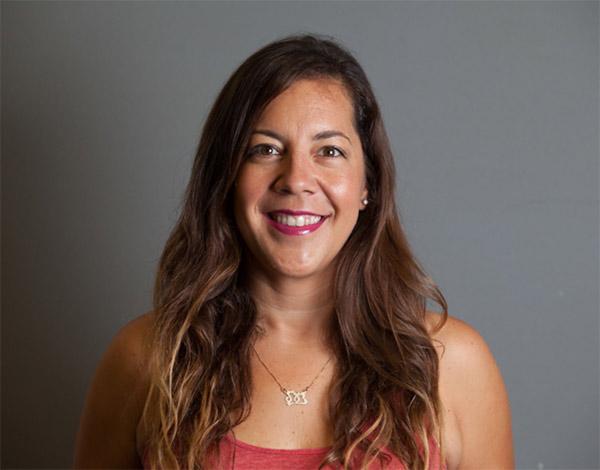BA (Hons)
Education
Content navigation menu
Why study BA Education at Goldsmiths
Develop your knowledge of the education system in the UK and beyond. You'll explore policy issues with a focus on social justice and equality, and understand education from a multidisciplinary perspective.
- You'll gain an understanding of the role of education in diverse societies and how the education system continues to be shaped by social, political and economic factors. You'll use this knowledge to address a broad range of themes and ideas including gender in the early years, alternatives to schooling, mental health and wellbeing, and institutional racism.
- You’ll be encouraged to think about the ways people are excluded from education and society, and explore possible reasons for – and alternatives to – this. We're interested in the tensions that can arise in a system that advocates education for all but mediates against the full participation of some groups.
- We are proud of the strong creativity strand that permeates the programme and reflects our expertise in visual and performing arts. If you are interested in employment in the creative industries, with a focus on education, this is the degree for you.
- You’ll have the opportunity to gain work experience at a range of organisations. Previous students have worked on literacy with Bengali women, developed educational materials at a city farm, and put together an art exhibition at a pupil referral unit for excluded secondary school students.
- If you already practise in an education or community setting, we’ll work with you so you can use your experience to inform your studies. Past students have interviewed young people they have been supporting, and have created resources for children with special educational needs from countries where they have connections, such as Ghana and Slovakia.
Contact the department
If you have specific questions about the degree, contact Dr Yael Gerson or Dr Thomas Zacharias.
UCAS code
X390
Length
3 years full-time or up to 6 years part-time
Fees
Home - full-time: £9250
Home - part-time: £4625
International - full-time: £19640
Department
Watch videos about your course
What you'll study
Your pathway through the degree is individually designed, offering you the opportunity to create combinations that match your interests and/or intended career route.
Compulsory modules
In the first year, you'll take the following compulsory modules:
| Module title | Credits |
|---|---|
| Culture and Identity | 30 credits |
| Education in Britain: Past and Present | 30 credits |
| Understanding Learning | 30 credits |
| Identity, Agency & Environment 1 | 15 credits |
| Identity, Agency & Environment 2 | 15 credits |
Teaching style
This programme is taught through a mixture of seminars, lectures, tutorials, studio practice, performances and personal research. You’ll also be expected to undertake a significant amount of independent study. This includes carrying out required and additional reading, preparing topics for discussion, and producing essays or project work.
How you'll be assessed
You’ll be assessed by a variety of methods, depending on your module choices. These may include essays, examinations, written assignments, exhibitions, presentations (including multimedia), reports, practice-based assessments and a dissertation.
Credits and levels of learning
An undergraduate honours degree is made up of 360 credits – 120 at Level 4, 120 at Level 5 and 120 at Level 6. If you are a full-time student, you will usually take Level 4 modules in the first year, Level 5 in the second, and Level 6 modules in your final year.
Study abroad opportunity
As well as taking on a work placement, you’ll have the opportunity to apply to study abroad. This will give you the chance to explore how education, culture and society can be interpreted in a new context.
The Goldsmiths Go Abroad team support our students in applying for a range of study opportunities from two weeks to a term, in various locations across Europe and sometimes beyond. Find out more about study abroad opportunities.
Careers
During the degree you'll receive support for your personal and career development through our personal progress programme. You’ll have access to a professional network made up of departmental and university staff running tutorials and workshops to help you reflect on your personal, academic and employment goals.
The knowledge, understanding and skills you can develop on this degree are transferable to a range of professions such as:
- Primary school teaching
- Working in the creative industries
- Youth and community work
- Social work
- Educational administration
- Other areas that require a specialist knowledge of education, such as charities and the leisure industries
If you are considering primary teaching, you will need to combine your degree with a one-year PGCE. Successful completion of the BA Education degree guarantees you an interview for Goldsmiths’ highly regarded PGCE Primary programme, provided you meet current government requirements.
You can find out more about the career options open to you after you graduate on our education careers page.
Skills
This degree helps you develop:
- Analytical and critical thinking skills
- The ability to synthesise and distil information and communicate ideas in writing and other media
- Presentation skills
- Interpersonal skills
- The ability to work independently and as part of a team
- Expertise in carrying out personal research
- Time management skills
Entry requirements
We accept the following qualifications:
A-level: BBC
BTEC: DMM
International Baccalaureate: 31 points with three HL subjects at 655
UAL Extended Diploma: Merit overall
Access: Pass with 45 Level 3 credits including a number of distinctions/merits in subject specific modules
Scottish qualifications: BBBCC (Higher) or BCC (Advanced Higher)
European Baccalaureate: 75%
Irish Leaving Certificate: H2 H2 H2 H2
International qualifications
We also accept a wide range of international qualifications. Find out more about the qualifications we accept from around the world.
If English isn’t your first language, you will need an IELTS score (or equivalent English language qualification) of 6.0 with a 6.0 in writing and no element lower than 5.5 to study this programme. If you need assistance with your English language, we offer a range of courses that can help prepare you for degree-level study.
Alternative qualifications and experience
See our full list of undergraduate entry qualifications.
We welcome students with a range of educational experiences. If you believe you may not meet the standard qualification requirements we would still encourage you to apply because we consider all aspects of your application when making a decision.
We’ll pay particularly careful attention to your personal statement, which is your opportunity to demonstrate your interest in the subject you’ve applied for. Your referees are also welcome to include any relevant contextual comments around your academic achievements. We’ll look at all these things when making a decision on your application, as well as your qualifications and grades, and may still be able to offer you a place.
Fees and funding
Annual tuition fees
These are the UG fees for students starting their programme in the 2024/2025 academic year.
- Home - full-time: £9250
- Home - part-time: £4625
- International - full-time: £19640
If your fees are not listed here, please check our undergraduate fees guidance or contact the Fees Office, who can also advise you about how to pay your fees.
It’s not currently possible for international students to study part-time if you require a Student Visa, however this is currently being reviewed and will be confirmed in the new year. Please read our visa guidance in the interim for more information. If you think you might be eligible to study part-time while being on another visa type, please contact our Admissions Team for more information.
If you are looking to pay your fees please see our guide to making a payment.
Funding opportunities
We offer a wide range of scholarships and bursaries, and our Careers Service can also offer advice on finding work during your studies. Find out more about funding your studies with us.
Additional costs
In addition to your tuition fees, you'll be responsible for any additional costs associated with your course, such as buying stationery and paying for photocopying. You can find out more about what you need to budget for on our study costs page.
There may also be specific additional costs associated with your programme. This can include things like paying for field trips or specialist materials for your assignments. Please check the programme specification for more information.



